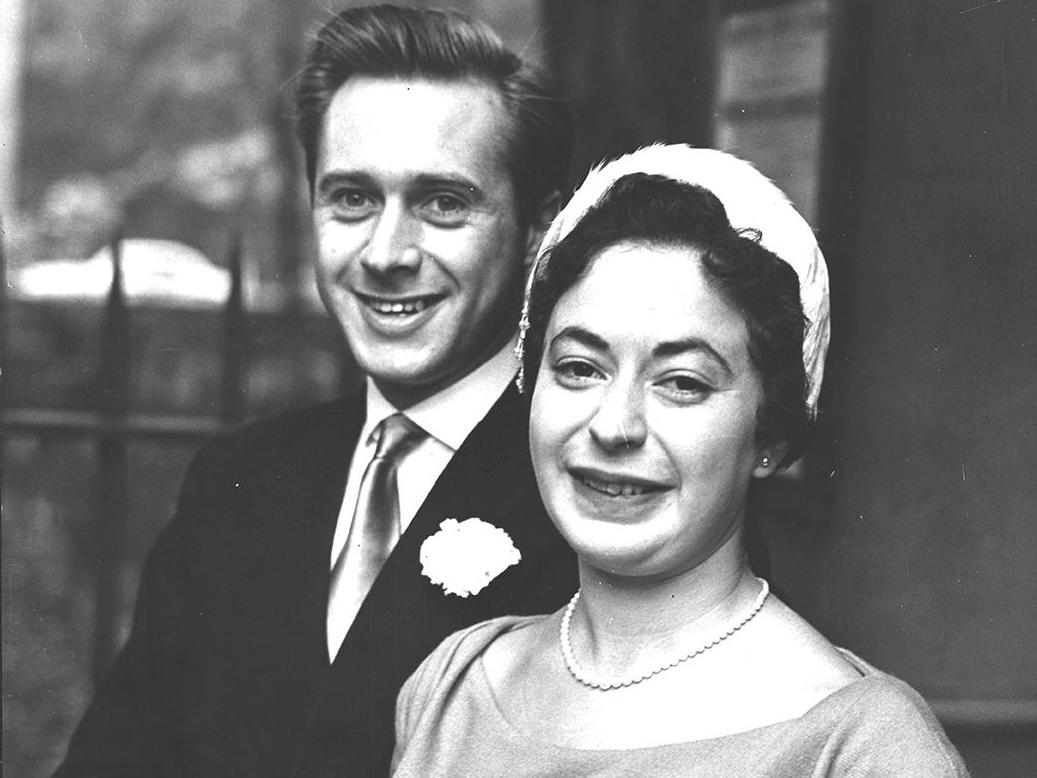Gillian Freeman: groundbreaking novelist who explored taboo themes
The writer’s deft ability to show empathy towards outsiders was highlighted in 1961 novel ‘The Leather Boys’ – which featured two gay protagonists

Your support helps us to tell the story
From reproductive rights to climate change to Big Tech, The Independent is on the ground when the story is developing. Whether it's investigating the financials of Elon Musk's pro-Trump PAC or producing our latest documentary, 'The A Word', which shines a light on the American women fighting for reproductive rights, we know how important it is to parse out the facts from the messaging.
At such a critical moment in US history, we need reporters on the ground. Your donation allows us to keep sending journalists to speak to both sides of the story.
The Independent is trusted by Americans across the entire political spectrum. And unlike many other quality news outlets, we choose not to lock Americans out of our reporting and analysis with paywalls. We believe quality journalism should be available to everyone, paid for by those who can afford it.
Your support makes all the difference.Gillian Freeman’s richly detailed historical novels chronicled free spirits both in the Edwardian era and Nazi Germany.
However the author, who has died at 89, stepped out of the mainstream to write a pioneering study of pornography and a landmark work of gay literature.
Freeman was working as a secretary for novelist Louis Golding when she began writing her first book, The Liberty Man. Published in 1955, it centred on a schoolteacher and a sailor whose love affair brings class barriers to the fore.
She went on to write scripts for television, radio and an early Robert Altman film; scenarios for Royal Ballet choreographer Kenneth MacMillan; and about a dozen more novels, often featuring undercurrents of romance and mystery, with protagonists who are outcasts by virtue of their religion, class or sexuality.
While no outsider herself, her works show and empathy towards those who don’t fit in, such as Dick and Reggie, the gay, motorcycling protagonists of 1961’s The Leather Boys.
Marketed as a British take on the Marlon Brando film The Wild One, Freeman’s novel featured shoplifting and theft, a preponderance of black leather jackets, a failed marriage and a male friendship that develops into a sexual relationship.
The Leather Boys was published six years before homosexuality was decriminalised in England and Wales. It was part of a wave of boundary-breaking gay novels that included works by Christopher Isherwood, Mary Renault and (posthumously) EM Forster.
Freeman released the book under the name Eliot George, a nod to Mary Ann Evans who wrote Middlemarch as George Eliot. Freeman used her own name while serving as screenwriter for a 1964 film adaptation.
Directed by Sidney Furie, the film, which starred Rita Tushingham, tweaked the novel’s plot, keeping Reggie’s unhappy marriage but having him spurn the advances of a gay biker, named Pete.
Freeman went on to survey the state of modern pornography in The Undergrowth of Literature (1967), which drew from magazines like Woman’s Own and Man’s Story to examine “the particular fantasies people need to get through life”, her husband said.
And she wrote two major novels set in Nazi Germany, including The Alabaster Egg (1970), about a Jewish woman’s tragic romance, and Nazi Lady: The Diaries of Elisabeth von Stahlenberg, 1933-1948 (1978), which originally omitted Freeman’s name from the cover.
Appearing to be an authentic Nazi diary, the novel chronicled the daily life of a woman who marries an employee of propaganda minister Joseph Goebbels, meets Adolf Hitler and espouses the necessity of accepting “a certain amount of violence to achieve peaceful ends”. Freeman’s identity as author was soon revealed by the Evening Standard, but by then, the book had already fooled plenty of readers.
According to The Telegraph, Anthony Blond wrote in a memoir that historian and the late Tory MP Alan Clark declared the novel “indisputably genuine ... A contemporary document of the highest importance to social historians of the epoch”.
American publishers, meanwhile, offered to double their advance if “von Stahlenberg” would agree to a book tour.
Gillian Freeman was born in north London in 1929 to Jewish parents, Jack Freeman and wife Freda (nee Davids). Her mother was a homemaker, and her father was a physician turned dentist, who encouraged five-year-old Gillian’s writing efforts by clipping together her handwritten stories about dogs and fairies.
She graduated in English and philosophy from the University of Reading in 1951. After moving to London, she worked as a copywriter, a schoolteacher in the East End and a newspaper reporter before being hired by Golding, one of her father’s dental patients.
In 1955 Freeman married Edward Thorpe, a ballet critic and novelist. They later co-wrote Ballet Genius (1988), a book profiling 20 leading dancers. By then, Freeman had written scenarios for Kenneth MacMillan ballets Isadora and Mayerling, which depicted a suicide pact between Crown Prince Rudolf of Austria and his mistress.
In addition to her husband, survivors include two daughters, actresses Harriet Thorpe and Matilda Thorpe, and five grandchildren.
Freeman’s other works included the screenplay for Altman’s That Cold Day in the Park (1969), based on a thriller by Richard Miles, and her novel An Easter Egg Hunt (1981), about a 17-year-old girl’s disappearance at a boarding school during the Second World War.
Her Nazi Lady continued to bedevil inattentive readers in recent years. When Canongate published The Secret Annexe (2004), an anthology of war diarists edited by Irene and Alan Taylor, the book included an excerpt from the diary of Elisabeth von Stahlenberg.
Gillian Freeman, writer, 5 December 1929, died 23 February 2019
© Washington Post
Join our commenting forum
Join thought-provoking conversations, follow other Independent readers and see their replies
Comments